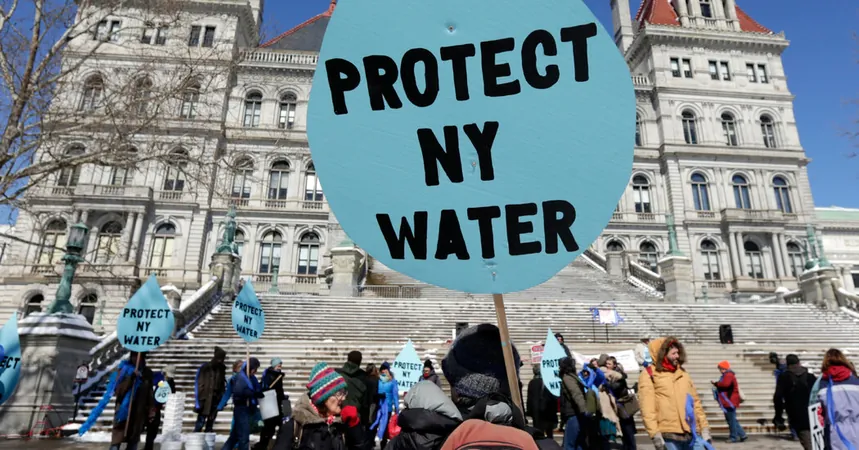
Williams Set to Revitalize Controversial Natural Gas Pipeline Projects in New York!
2025-05-30
Author: Lok
Pipeline Plans Reawakened Amid Political Shifts
In a surprising twist, Williams Companies is reigniting plans to construct two natural gas pipelines into New York State, a dramatic pivot signaling hope for energy infrastructure following the Trump administration's overt push for oil and gas initiatives. These projects, Constitution and Northeast Supply Enhancement, previously faced rejection from New York due to significant environmental concerns.
Trump Administration's Role
After a pivotal week of negotiations, where the Trump administration lifted its opposition to the Empire Wind energy project off Long Island, Governor Kathy Hochul hinted at a conditional readiness to collaborate on new energy projects, potentially paving the way for the previously stalled pipelines.
Pipelines in the Pipeline
The Constitution pipeline is designed to transport natural gas over 100 miles from Pennsylvania to Albany, while the Northeast Supply Enhancement project aims to deliver gas underwater from New Jersey to New York City. Williams has reached out to state officials to revisit regulatory discussions and has requested the Federal Energy Regulatory Commission to reinstate the Northeast Supply Enhancement permit, eyeing a 2027 operational start.
Economic Considerations and Political Pressure
Williams argues these pipelines are crucial to alleviating persistent natural gas supply shortages in the Northeast—shortages that lead to skyrocketing energy costs for consumers. Governor Hochul acknowledged that while pipelines might help reduce prices, they must adhere to local and state regulations. As energy bills continue to soar, Hochul faces political pressure ahead of her re-election bid, providing an incentive to seek solutions.
The Ongoing Battle Over Energy Prices
The contentious debate surrounding gas pipelines into New York has escalated as the region's reliance on natural gas increases—nearly half of electricity in New York and New England now comes from gas, yet costs remain some of the highest nationwide. Recent studies suggest expanding pipelines could dramatically lower gas prices, especially during the winter.
Environmental Impacts and Opposition
However, many environmentalists and Democratic officials vehemently oppose new pipelines, highlighting the potential for increased greenhouse gas emissions and a challenge to climate initiatives. Critics argue that while additional gas could temporarily lower emissions by displacing more polluting fuels, it may hinder long-term investments in renewable energy.
Roadblocks Ahead
Despite a potentially more favorable regulatory climate, Williams Companies faces significant challenges. Securing financing for these projects—previously estimated at nearly $1 billion each—will require a stable demand for gas and long-term customer commitments. Given the aggressive fossil fuel reduction targets set by Northeastern states, the demand landscape remains uncertain.
Community Resistance Looms
Local residents and environmental advocates are expected to mount considerable opposition to these initiatives. As Mark Izeman from the Natural Resources Defense Council suggests, the pipeline projects are likely to face intense resistance, potentially leading to prolonged legal confrontations. The future of these pipelines appears to be as turbulent as the political landscape around them.





 Brasil (PT)
Brasil (PT)
 Canada (EN)
Canada (EN)
 Chile (ES)
Chile (ES)
 Česko (CS)
Česko (CS)
 대한민국 (KO)
대한민국 (KO)
 España (ES)
España (ES)
 France (FR)
France (FR)
 Hong Kong (EN)
Hong Kong (EN)
 Italia (IT)
Italia (IT)
 日本 (JA)
日本 (JA)
 Magyarország (HU)
Magyarország (HU)
 Norge (NO)
Norge (NO)
 Polska (PL)
Polska (PL)
 Schweiz (DE)
Schweiz (DE)
 Singapore (EN)
Singapore (EN)
 Sverige (SV)
Sverige (SV)
 Suomi (FI)
Suomi (FI)
 Türkiye (TR)
Türkiye (TR)
 الإمارات العربية المتحدة (AR)
الإمارات العربية المتحدة (AR)